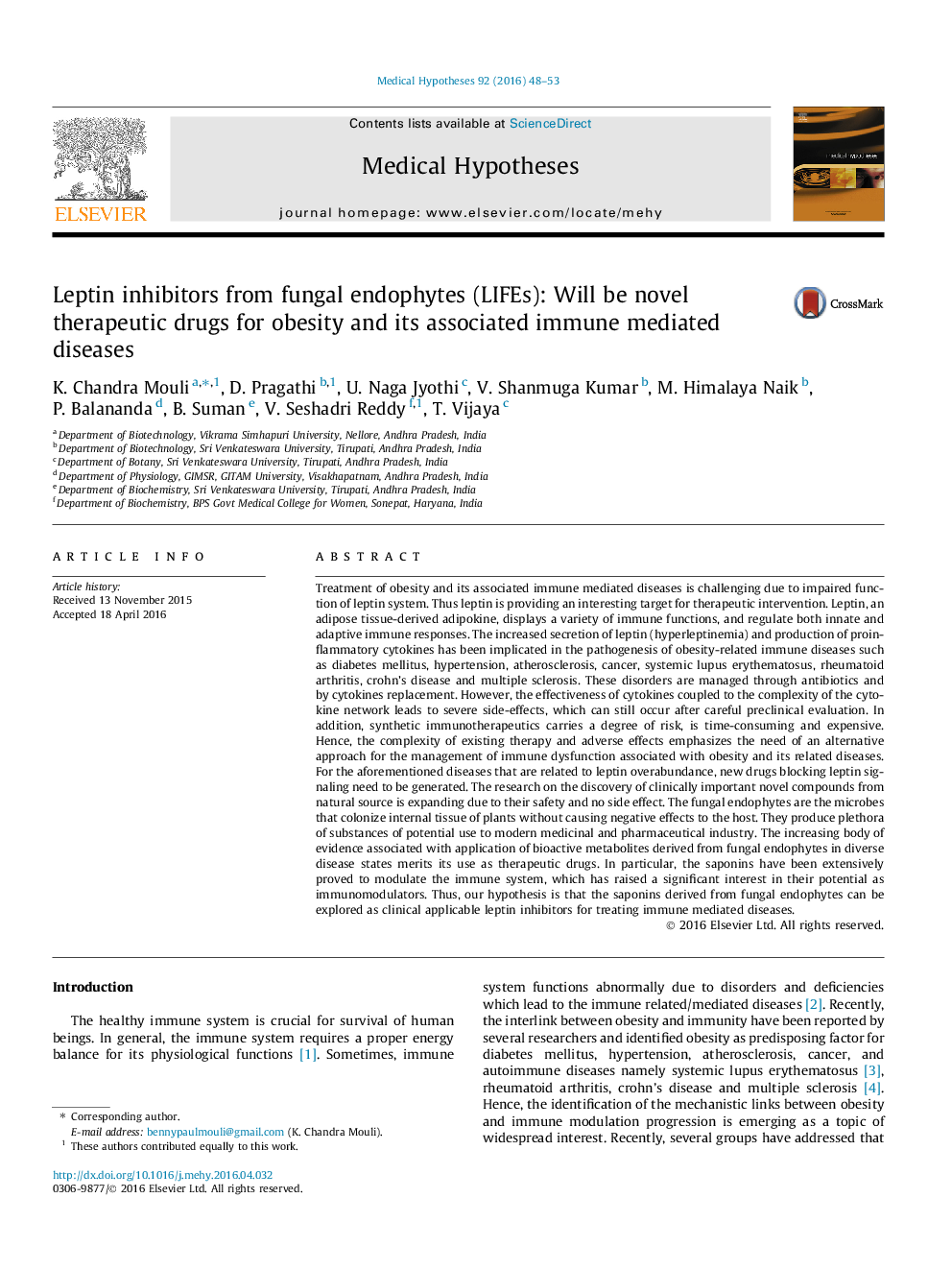| کد مقاله | کد نشریه | سال انتشار | مقاله انگلیسی | نسخه تمام متن |
|---|---|---|---|---|
| 2488916 | 1556553 | 2016 | 6 صفحه PDF | دانلود رایگان |
Treatment of obesity and its associated immune mediated diseases is challenging due to impaired function of leptin system. Thus leptin is providing an interesting target for therapeutic intervention. Leptin, an adipose tissue-derived adipokine, displays a variety of immune functions, and regulate both innate and adaptive immune responses. The increased secretion of leptin (hyperleptinemia) and production of proinflammatory cytokines has been implicated in the pathogenesis of obesity-related immune diseases such as diabetes mellitus, hypertension, atherosclerosis, cancer, systemic lupus erythematosus, rheumatoid arthritis, crohn’s disease and multiple sclerosis. These disorders are managed through antibiotics and by cytokines replacement. However, the effectiveness of cytokines coupled to the complexity of the cytokine network leads to severe side-effects, which can still occur after careful preclinical evaluation. In addition, synthetic immunotherapeutics carries a degree of risk, is time-consuming and expensive. Hence, the complexity of existing therapy and adverse effects emphasizes the need of an alternative approach for the management of immune dysfunction associated with obesity and its related diseases. For the aforementioned diseases that are related to leptin overabundance, new drugs blocking leptin signaling need to be generated. The research on the discovery of clinically important novel compounds from natural source is expanding due to their safety and no side effect. The fungal endophytes are the microbes that colonize internal tissue of plants without causing negative effects to the host. They produce plethora of substances of potential use to modern medicinal and pharmaceutical industry. The increasing body of evidence associated with application of bioactive metabolites derived from fungal endophytes in diverse disease states merits its use as therapeutic drugs. In particular, the saponins have been extensively proved to modulate the immune system, which has raised a significant interest in their potential as immunomodulators. Thus, our hypothesis is that the saponins derived from fungal endophytes can be explored as clinical applicable leptin inhibitors for treating immune mediated diseases.
Journal: Medical Hypotheses - Volume 92, July 2016, Pages 48–53
